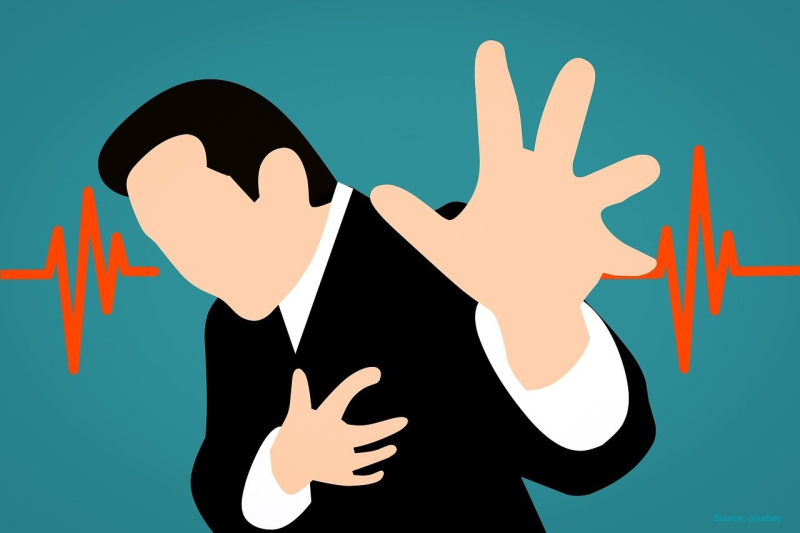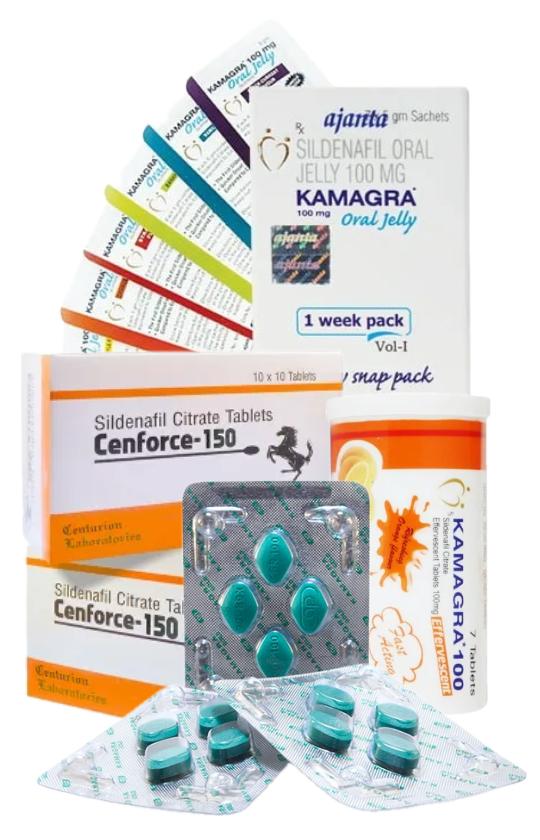Erectile dysfunction (ED) is a common issue today that affects many men. It means that a man has difficulty achieving or maintaining an erection sufficient for sexual intercourse. This problem might not only be a matter of sexual health, but it can also indicate more serious health concerns, including heart disease.
In recent years, doctors have found that erection problems can be one of the early signals of cardiovascular diseases like atherosclerosis, high blood pressure, or coronary heart disease.
The Link Between Erectile Dysfunction and Heart Disease
Shared Risk Factors
Importance of Early Detection
Pharmacological Treatment for Erectile Dysfunction
Conclusion
The Link Between Erectile Dysfunction and Heart Disease
Cardiovascular diseases affect blood flow throughout the body, including the penis, which explains why erectile dysfunction can appear even before a man experiences other symptoms of heart problems, such as chest pain or breathing difficulties.
Erectile dysfunction can precede heart disease by 3–5 years and thus serves as an important warning sign indicating issues with the cardiovascular system.
However, the causes of erectile dysfunction are diverse, and the issue is not always straightforward. The hormonal system also plays a significant role, and testosterone, in particular, has a notable impact on ED.
How Can ED Be a Warning Sign?
The arteries in the penis are narrower than those supplying blood to the heart, which means they can become blocked sooner—causing problems with erections. Therefore, ED can be an early indicator that blood vessels in other parts of the body, including those supplying the heart, are also at risk.
How Do Cardiovascular Diseases Like Atherosclerosis and Endothelial Dysfunction Relate to ED?
Atherosclerosis causes the narrowing of blood vessels due to the buildup of fat and cholesterol. It is a common cause of both erectile dysfunction and heart disease. Atherosclerosis restricts blood flow, negatively affecting both erectile function and heart health.
Endothelial dysfunction (damage to the vascular lining) impairs the blood vessels' ability to expand and ensure adequate blood flow. This natural ability of the blood vessels is crucial for the proper functioning of both the heart and erections.
Shared Risk Factors
Erectile dysfunction and heart disease share several key risk factors that impact vascular health and blood circulation:
High Blood Pressure
High blood pressure damages blood vessels in several ways. First, it exerts increased pressure on the arterial walls, leading to thickening and hardening (arterial hypertrophy), which reduces the flexibility of the vessels and worsens blood flow.
It also damages the inner lining of blood vessels (the endothelium), which normally produces substances like nitric oxide that help the vessels expand. Endothelial damage is often the first step in the development of atherosclerosis, where plaques composed of fats and cholesterol start to form and narrow the arteries, reducing blood flow.
High blood pressure significantly increases the risk of heart attack, stroke, and the aforementioned erectile dysfunction.
Diabetes
High blood sugar levels damage blood vessels and nerves. Nerve damage can also negatively affect the ability to achieve and maintain an erection.
Obesity
Excess weight increases cholesterol levels and promotes the formation of the aforementioned plaques in the arteries. These plaques can lead to narrowing of the vessels, which limits blood flow to the heart and penis. Obesity also increases the risk of high blood pressure and diabetes, further contributing to the development of erectile dysfunction and cardiovascular issues.
The direct link between obesity and ED is confirmed by many studies, including a 2019 study published in The World Journal of Men’s Health. More details on the connection between obesity and ED can be found in the article “Obesity and Erectile Dysfunction.”
Smoking and a Sedentary Lifestyle
Smoking damages blood vessels by promoting the formation of free radicals and increasing plaque formation in the arteries. Lack of physical activity contributes to poorer blood circulation and loss of vascular flexibility. These factors not only increase the risk of erectile dysfunction but also contribute to the development of heart disease.
For you interest: Did you know that sleep also affects erectile function? Learn more in the article “Sleep and Erectile Dysfunction.”
Importance of Early Detection
Erectile dysfunction can be the first indication of broader health issues. Rather than being viewed solely as a sexual difficulty, it should be understood as a potential sign of vascular and heart problems. Early detection of these issues can prevent the development of more serious diseases that might otherwise go unnoticed.
Regular Cardiovascular Examinations
Men with erectile dysfunction should undergo regular cardiovascular check-ups. If you have additional risk factors, such as diabetes or high blood pressure, this becomes even more crucial. It’s not just about improving sexual function, but also about protecting overall health.
A Proactive Approach to Health
Adopting a healthy lifestyle is key to reducing the risk of both erectile dysfunction and heart disease. Regular exercise, a healthy diet low in fats and sugars, quitting smoking, and managing stress can have long-term positive effects on cardiovascular health as well as overall vitality.
It’s important to note that erection problems can sometimes be temporary and may not always be indicative of erectile dysfunction. Check out the symptoms of ED and the most common causes. If you’re unsure whether this issue applies to you, we recommend taking at home the short IIEF questionnaire to help diagnose ED, which could provide some insight.
Pharmacological Treatment for Erectile Dysfunction
One method of treating and correcting erectile dysfunction is pharmacological therapy. Medications used to treat ED work by improving blood flow to the penis, making it easier to achieve and maintain an erection. However, men with cardiovascular disease should be particularly cautious with these medications. Some of them may not be suitable for use at all.
Experts agree that men taking nitrates should never use ED medications, as both drugs dilate blood vessels, which lowers blood pressure. If these medications are used together, it can lead to a dangerous drop in blood pressure. This sharp decline can result in dizziness, fainting, or even life-threatening conditions, as explained in a study from the prestigious Harvard Medical School.
This includes all forms of nitroglycerin (short-term sublingual, tablets, or sprays), long-acting nitrates (e.g., isosorbide dinitrate, Isordil, Sorbitrate, isosorbide mononitrate, Imdur, ISMO), nitroglycerin patches and pastes, and amyl nitrite or amyl nitrate (known as “poppers,” which some men use for stimulation).
Overview of Common ED Medications
There are two categories of ED medications on the market: original medications and their generic versions. Generic drugs contain the same active ingredients as the original medications but are significantly cheaper. They were developed after the original manufacturers' patents for the active ingredients expired, allowing other pharmaceutical companies to use them. They are just as safe and effective as the originals, making them a popular choice for many men with erectile dysfunction. The most commonly used generics include:
- Sildenafil: Generic Viagra works within 30–60 minutes, and its effects last approximately 4–6 hours. The best-selling products include: from the group Kamagra - Kamagra 100, Kamagra Gold, and Kamagra Oral Jelly (learn more about this gel in the article "Kamagra Gel"), as well as Cenforce 100, Cobra Red, and Kingmaster.
- Tadalafil: Generic versions are called Cialis Generics. Tadalafil has a longer duration of action—it can last up to 36 hours. You can find it in products like Tadarise, Vidalista 20, and Vidalista 40.
- Vardenafil: The most well-known product in the Levitra Generics group is Valif.
A separate category includes products that combine ingredients for treating erectile dysfunction and premature ejaculation. You can find these in our store under the category Premature Ejaculation, with the most popular being Super Kamagra, Cenforce D, and Tadapox.
Tadalafil as a Better Choice for Men with Heart Conditions
For men with cardiovascular problems who are not taking nitrates, tadalafil may be a more suitable option than other ED medications. Studies suggest that tadalafil may have fewer interactions with certain heart medications, such as blood pressure-lowering drugs, compared to other ED medications like sildenafil or vardenafil.
However, it is always important to discuss treatment options with a doctor, who can recommend the most appropriate medication based on your individual health condition and the medications you are currently taking.
Conclusion
Erectile dysfunction and cardiovascular disease share many common risk factors, such as high blood pressure, diabetes, obesity, and smoking. The damage to blood vessels caused by these factors affects blood flow to both the heart and the penis, potentially leading to erection problems. ED often serves as the first warning sign of poor vascular health and can occur 3–5 years before the onset of heart disease.
Treatment of ED with medications such as PDE-5 inhibitors offers a solution, but for men taking nitrates, their use is contraindicated, as the combination of these drugs can lead to a dangerous drop in blood pressure. Men not using nitrates can take these medications, but always after consulting a doctor.
Tadalafil, due to its long duration of action, is one of the most suitable options for men with ED who are not undergoing nitrate treatment.
Erectile dysfunction affects not only the man but also his partner. Partners play a key role in providing support and can help not only with addressing emotional aspects but also with seeking medical help and treatment. If you’re interested in learning how erectile dysfunction can impact a relationship, read the article The Effect of Erectile Dysfunction on the Partner.
Author: Jason Smith
Sources
https://www.ncbi.nlm.nih.gov/pmc/articles/PMC8845478/
https://www.ncbi.nlm.nih.gov/pmc/articles/PMC6479091/
https://www.mayoclinic.org/diseases-conditions/erectile-dysfunction/in-depth/erectile-dysfunction/art-20045141
https://www.bhf.org.uk/informationsupport/heart-matters-magazine/wellbeing/erectile-dysfunction
https://my.clevelandclinic.org/health/diseases/10035-erectile-dysfunction
https://www.health.harvard.edu/mens-health/are-erectile-dysfunction-pills-safe-for-men-with-heart-disease
https://www.hopkinsmedicine.org/health/wellness-and-prevention/erectile-dysfunction-and-your-health-5-things-you-need-to-know







